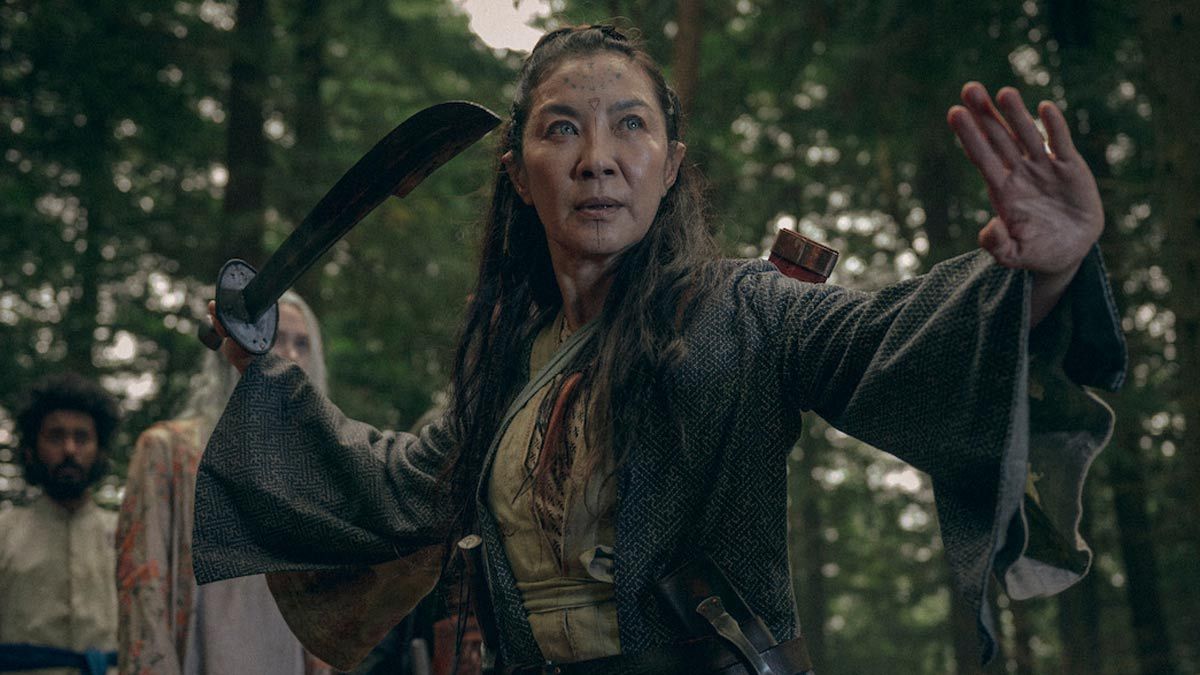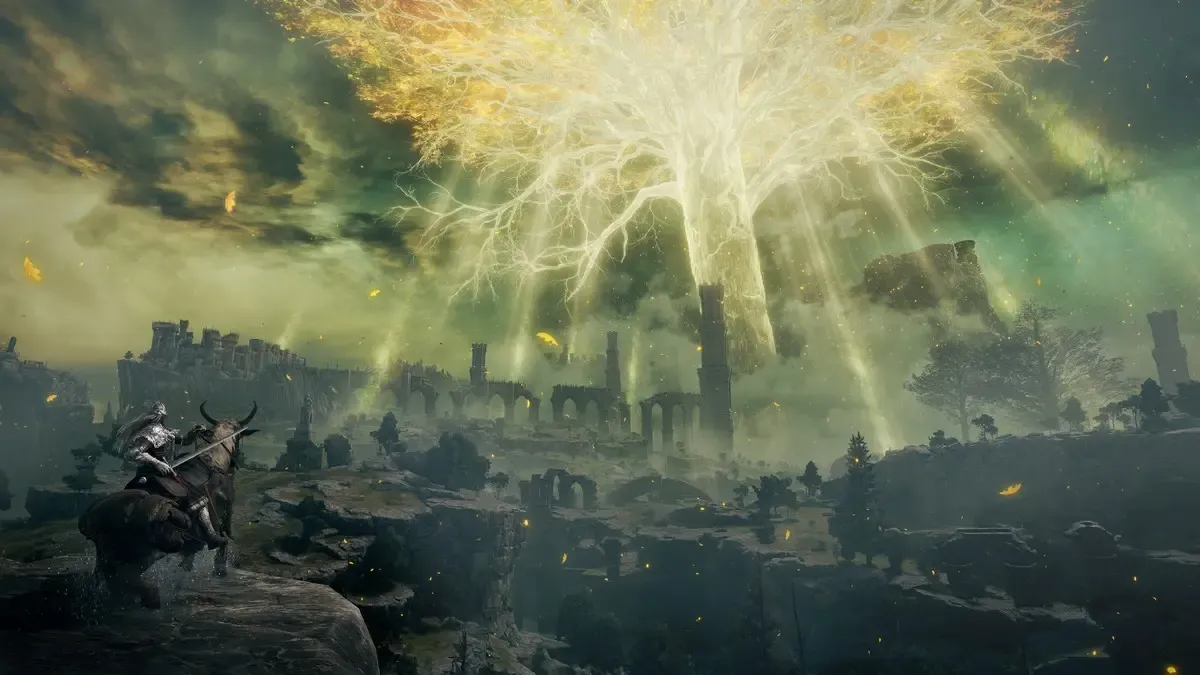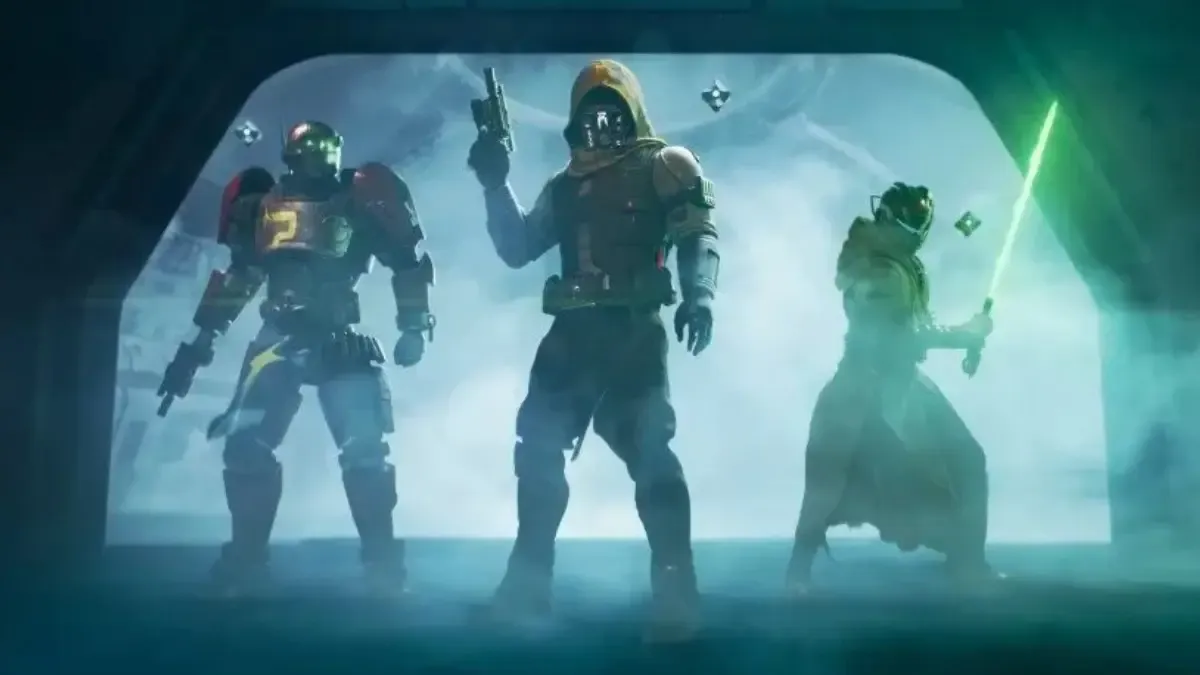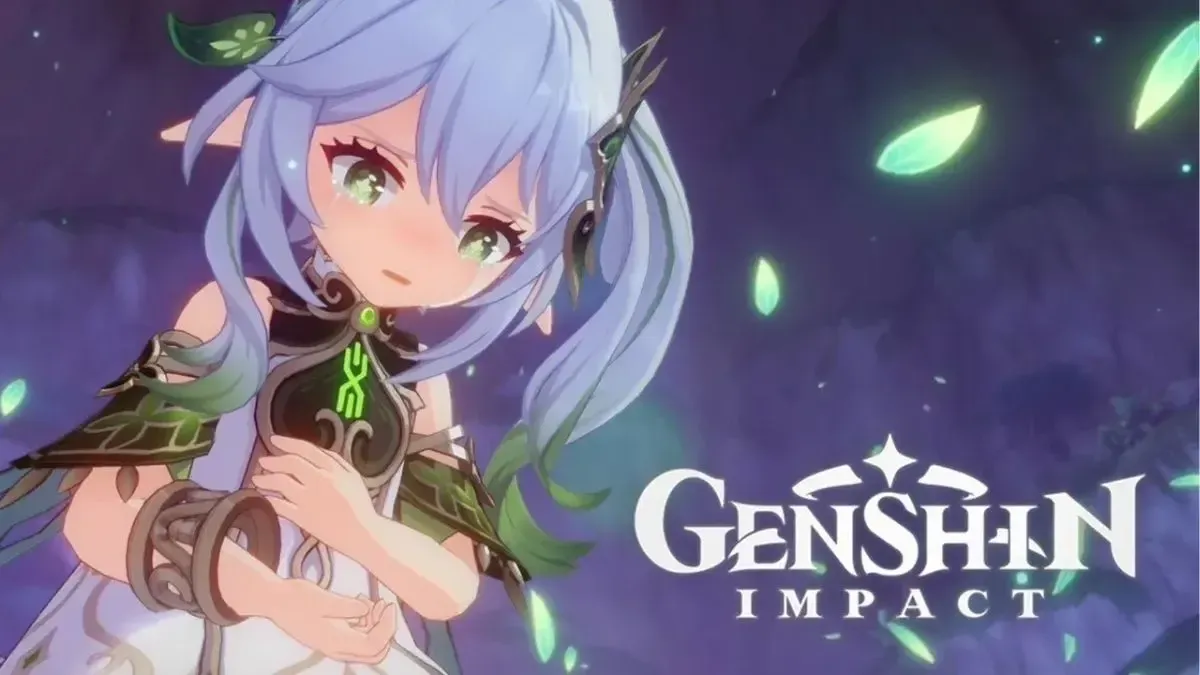Image: Netflix
This show is solid proof that spin-offs aren’t always necessary.
Netflix is hellbent on turning The Witcher into a cinematic universe, but tacking on original stories to what should be a straightforward book adaptation was a risky play from the start. In The Witcher: Blood Origin, we’re seeing the first signs of diminishing returns in a franchise that’s struggling to match ambition with quality. I went into this series with optimism despite its feeble marketing, given that it stars Michelle Yeoh and has pretty severe implications on the main show. Unfortunately, the slim four-episode count fails to accomodate its sprawling and uneven plot.
Back in the good old days
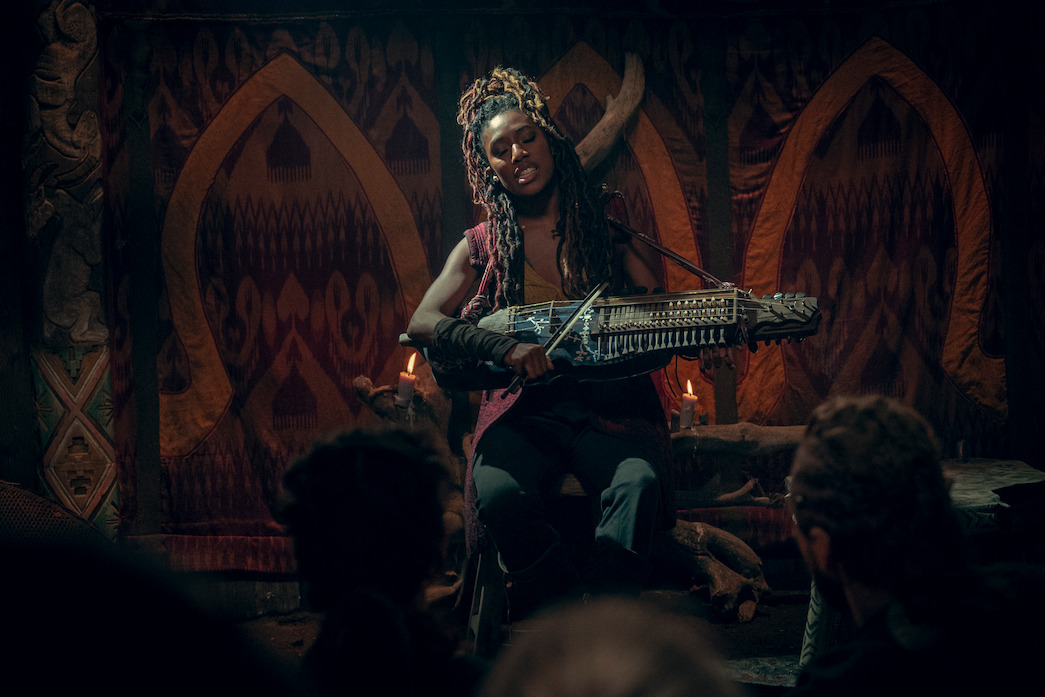
The Witcher: Blood Origin is a prequel set 1,200 years before Geralt’s monster-hunting adventures across the Continent. At this point in the Witcher’s timeline, elves ruled the Continent with very little opposition besides their own selves. Elfkind, as the series calls them, are divvied up into three distinct clans constantly at war with one another. From these three clans sprout most of the main cast; a misfit group of wanderers, criminals and warriors who awkwardly clump together as the series rolls on like an aimless snowball. It’s clear the series is aiming for a fun Suicide Squad, Magnificent Seven, Guardians of the Galaxy-like dynamic for the group’s members, but these efforts fall flat when they’re given so few opportunities to interact with one another.
The series sets up two plotlines that eventually converge as one. The first is the Conjunction of the Spheres, an event that opened up portals to other mysterious worlds and created the Continent as we know it today: a place filled with monsters, humans, elves and more strange creatures who inevitably collapse into violence and disarray. This is by far the most interesting thing Blood Origin manages to give us: a glimpse of Geralt’s world before it touched the multiverse - back when the Continent was shaped by warring elvish colonisers, and dwarves were forced into the mountains. The series does give us a bit of historical exposition here to work with, but with the story moving at such a breakneck pace, this phase of the Continent exists for approximately three hours before it’s gone for good.
The story's second half follows a coup in the elven empire that sees a young princess named Merwyn - who dresses in some of the most extravagant costumes the franchise has ever seen - getting involved in dubious elvish politics. The elvish empire wants to bring its kind to new heights of power, but that comes at pretty a harsh cost to most of our protagonists, leading them on a journey to storm the royal palace and overthrow its new ruler. In a year that’s spoiled fantasy enthusiasts with The Rings of Power and House of the Dragon, it’s difficult to overlook just how clumsily this series handles its political drama. The key actors playing political tug-of-war face little opposition as they throw coups and engage in schemes, and seem to enjoy talking about their power more than they actually put it to use.
Multiverse of monsters
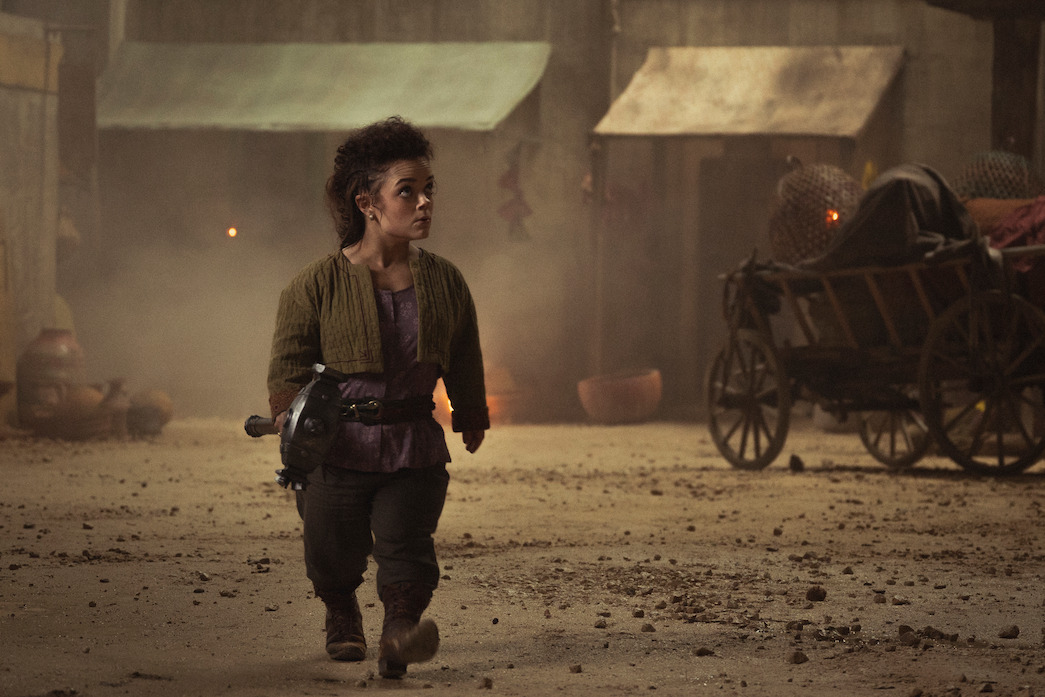
There are parts of Blood Origin that actually work quite well. The stunning Icelandic vistas we’re treated to throughout these four episodes are a gorgeous backdrop to our protagonists’ trek across the Continent, long before it was marred by the arrival of humans and monsters. We see vast green plains, craggy cliffs and black soil, providing some much-needed environmental eye candy. I say much-needed because the rest of the series filmed at the franchise’s Arborfield Studios sets are a real letdown by comparison. Indoor scenes taking place in palaces and bedrooms look strangely plain, clean and out of place in this world, with an almost brutalist style of architecture that would be more at home in a sci-fi franchise like Star Wars.
Thankfully, the show spends more time outside with its main cast of misbegotten adventurers, some of whom actually make an impression in the small amount of screentime they’re given. Meldof, a dwarf who carries around a warhammer lovingly dubbed Gwen, sparkles with personality and doesn’t fall into the ‘loveable grump’ trope most dwarves thrive in in this franchise. Series protagonist Eile is charismatic enough thanks to a solid performance from Sophia Brown, and despite being shoved into a tepid romantic plotline with a fellow warrior named Fjall, she carries the show really well. It’s also nice to see a bard at the center of a story like this, and she can definitely carry a tune. Michelle Yeoh is similarly fun to watch as the group’s designated wisdom-dealer, but she isn’t given a whole lot to work with here.
Blood Origin is fast-paced to the point of detriment, forsaking character development and worldbuilding to deliver a tightly-packed four-episode series that zips from one event to another. Fortunately, it gets some stuff right: the action is always fun to watch unfold, the inevitable Conjunction of the Spheres is executed with all the enigmatic wonder it deserves, and the music is excellent. Composer Bear McCreary seemingly hopped straight from God of War: Ragnarok, with his hurdy-gurdy still in hand, to the Witcher franchise to do what he does best: make some damn good music. Eile’s tunes are catchy and thankfully, we’re treated to another banger from Jaskier in the end credits.
Verdict
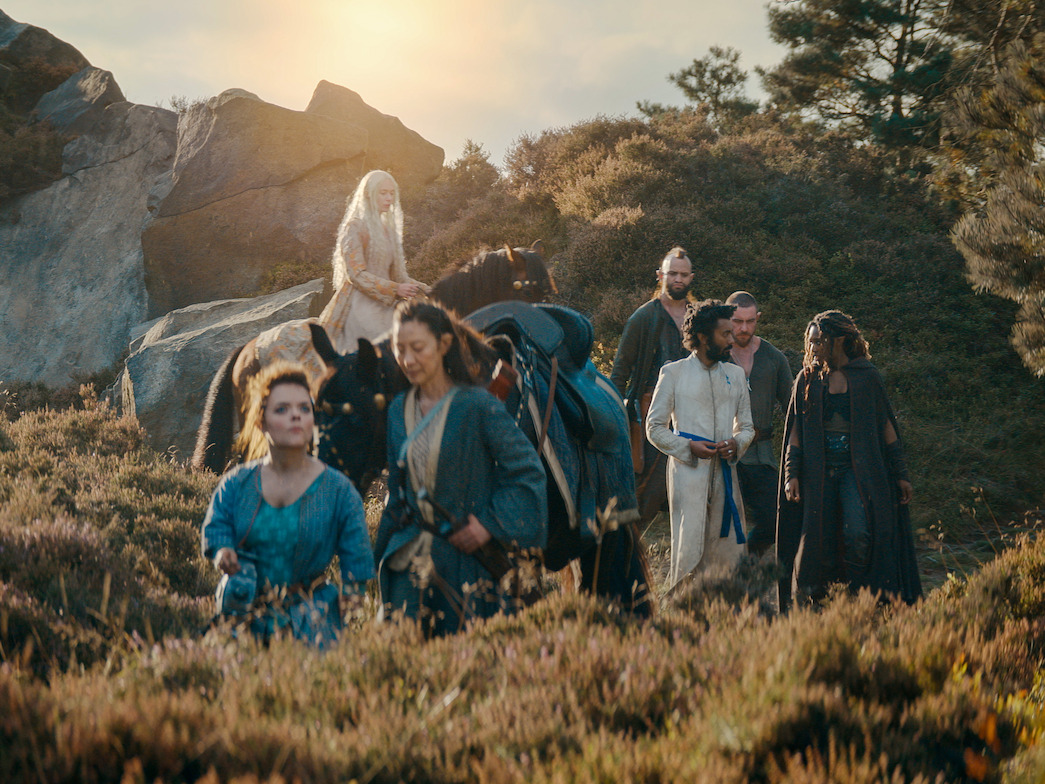
The Witcher: Blood Origin is by far the weakest product to come out of Netflix’s ever-expanding Witcher franchise, and solid proof that it might never have needed to be a franchise at all. If the popular streaming service can’t take an event as fascinating as the Conjunction of the Spheres, and build a compelling story out of it, then it might not have the chops to do much more than a straightforward adaptation of the books. The main cast has promise, the vistas we’re treated to are gorgeous, and the music is fantastic - but it all falls short in a rushed four-episode package that seems desperate to reach its puzzlingly anticlimactic end.
The Witcher: Blood Origin premieres on December 25, 2022 on Netflix.

